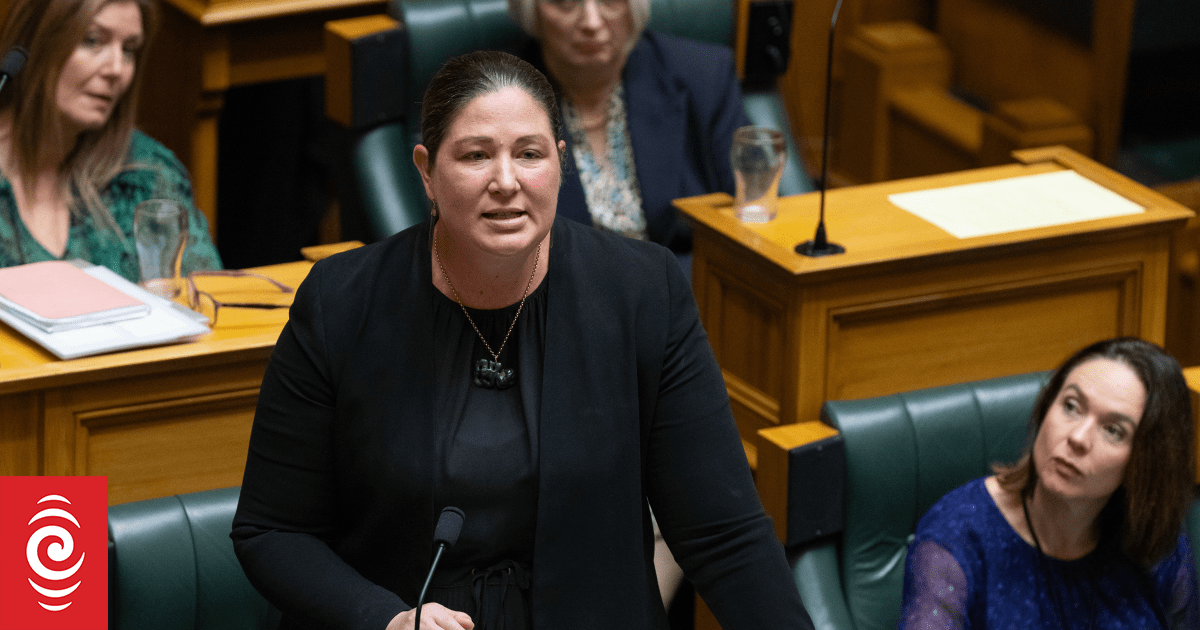Labour’s education spokesperson Willow-Jean Prime.
Photo: VNP / Phil Smith
Labour’s education spokesperson is defiant after rejecting offers to engage with the government about education reforms, saying she does not see it as a missed opportunity.
Documents show Willow-Jean Prime rejected Education Minister Erica Stanford’s offers to work with her on changes to NCEA and curriculums until after decisions had already been made.
That’s despite her, and Labour leader Chris Hipkins, criticising the government for not taking a more bipartisan approach with more consultation over proposals to scrap the NCEA secondary school qualifications system.
Stanford announced the plan to scrap NCEA this week, saying she would consult the sector on the idea over the next six weeks.
Minister’s requests to work together went ignored for months
The documents released under the Official Information Act show Stanford approached Prime via text message the first day she was named as Labour’s education spokesperson in March, taking over from Jan Tinetti.
“Congrats on your new role! Will need to get you up to speed with the NCEA change process. Jan and I had started working cross party on this given the importance of our national qualification. Would be good if we could meet first and I can run you through were we are at and what the process is.”
Stanford continued to try to contact Prime, but the emails show she could find no response – eventually emailing Hipkins instead on 1 July.
Education Minister Erica Stanford.
Photo: RNZ / Mark Papalii
“Dear Chris, I’ve sought on multiple occasions to get input from your Education spokesperson on NCEA curriculum reform, with no response. It is important to have cross-party collaboration regarding a national qualification, and the offer remains open to arrange a briefing from officials or from the Professional Advisory Group. I look forward to hearing from you,” she said.
A response came from Prime’s office the following day, saying she considered the email and was declining the invitation to be involved.
On 25 July, Prime sent a letter asking to meet and discuss curriculums and assessments on seven specific points.
Stanford responded on 3 August saying she had reached out on multiple occasions, but “key decisions have now been taken to formulate proposals for consultation”.
“These decisions have been informed by months of evidence-based advice and professional input from the Professional Advisory Group. Having received no response to my emails and then a decline to my invitation in July, unfortunately the opportunity to influence the substantial direction of the proposal is no longer available.
“Work has continued and we are now ready for broader sector consultation. I am committed to working constructively, and I would like to arrange for you to receive an official briefing on the NCEA proposal and our curriculum work programme, as has been previously offered.”
She offered to meet with Prime after that briefing and to discuss “the next phase of work”.
Prime defiant, calls for more consultation
At Labour’s caucus retreat in Christchurch, Prime told reporters she had been prioritising engaging with the sector rather than speaking to the minister – and did not see it as a missed opportunity.
“It was really important to me to understand from the sector what the issues are with NCEA and other things, and what the potential solutions to that are before engaging with the minister.
“I wanted to engage with experts. I wanted to talk widely in the sector, so not take something I had heard from one conversation in one group and run off to the minister’s office and, you know, make some claims about something. So I have spent a lot of time engaging with the sector so that I am informed.”
Prime said she had done her engagements with the sector, and come away with the impression they did not know what the government was doing.
“It was very secretive, and nobody knew what was going on. That concerned me,” she said.
“Nobody knew anything or could not speak to anything because they had to sign NDAs.”
Asked if she regretted not engaging with Stanford, she acknowledged she could have been more proactive.
“Oh, look, I probably could have said ‘this is why I need to take my time and please assure me that I can have the time that I need to do this’,” she said.
“But I was not given any timeframes from the minister that ‘we have only this amount of time to engage, because I’m going to announce and there’s only six weeks subsequent to that’.”
“The minister has a timeframe and is rushing this.”
She called for a longer consultation period with the sector, and to take the feedback on board.
“Is this genuine consultation or not? Has the decision been made or is the minister open to the feedback from the sector, from myself and from others, or is it simply notifying that this is what is going to happen?”
Sign up for Ngā Pitopito Kōrero, a daily newsletter curated by our editors and delivered straight to your inbox every weekday.

